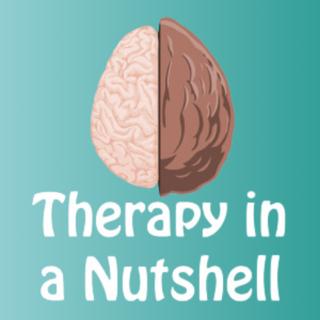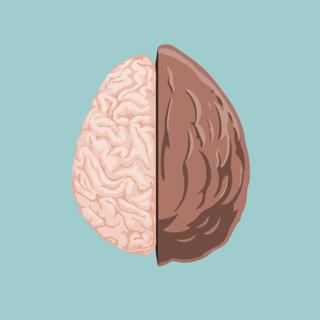
How to Stop Comparing Yourself to Others
Looking for affordable online counseling? My sponsor, BetterHelp, connects you to a licensed professional from the comfort of your own home. Try it now for 10% off your first month: https://betterhelp.com/therapyinanutshell Here’s what we do know about comparison- it contributes to mental health concerns like eating disorders, low self-esteem, depression, anxiety, social anxiety, body dissatisfaction, jealousy, narcissism, and perfectionism. It can also lead to other problems like overspending to keep up with the Joneses. One study found that when someone in a neighborhood won the lottery, neighbors began making big purchases like expensive cars that they couldn’t afford. When we compare ourselves to others it will always let us down in the long run. Let’s talk about 3 reasons why comparison lets us down, and then we’ll talk about what to do instead. Learn more in one of my in-depth mental health courses: https://courses.therapyinanutshell.com Support my mission on Patreon: https://www.patreon.com/therapyinanutshell Sign up for my newsletter: https://www.therapyinanutshell.com Check out my favorite self-help books: https://kit.co/TherapyinaNutshell/best-self-help-books Therapy in a Nutshell and the information provided by Emma McAdam are solely intended for informational and entertainment purposes and are not a substitute for advice, diagnosis, or treatment regarding medical or mental health conditions. Although Emma McAdam is a licensed marriage and family therapist, the views expressed on this site or any related content should not be taken for medical or psychiatric advice. Always consult your physician before making any decisions related to your physical or mental health. In therapy I use a combination of Acceptance and Commitment Therapy, Systems Theory, positive psychology, and a bio-psycho-social approach to treating mental illness and other challenges we all face in life. The ideas from my videos are frequently adapted from multiple sources. Many of them come from Acceptance and Commitment Therapy, especially the work of Steven Hayes, Jason Luoma, and Russ Harris. The sections on stress and the mind-body connection derive from the work of Stephen Porges (the Polyvagal theory), Peter Levine (Somatic Experiencing) Francine Shapiro (EMDR), and Bessel Van Der Kolk. I also rely heavily on the work of the Arbinger Institute for my overall understanding of our ability to choose our life's direction. And deeper than all of that, the Gospel of Jesus Christ orients my personal worldview and sense of security, peace, hope, and love https://www.churchofjesuschrist.org/comeuntochrist/believe If you are in crisis, please contact the National Suicide Prevention Hotline at https://suicidepreventionlifeline.org or 1-800-273-TALK (8255) or your local emergency services. Copyright Therapy in a Nutshell, LLC
4 Maalis 202417min

How to Turn on the Parasympathetic Response to Calm Anxiety: Day 22 of Break the Anxiety Cycle
Break the Anxiety Cycle in 30 Days- Online Course- https://courses.therapyinanutshell.com/anxietyskills The good news is that there are practical things you can do to turn on and strengthen your parasympathetic response. In this video you’ll learn how to activate the parasympathetic response, and how to strengthen your vagal tone- which is your body’s overall ability to regulate your nervous system and return to a sense of calm. Looking for affordable online counseling? My sponsor, BetterHelp, connects you to a licensed professional from the comfort of your own home. Try it now for 10% off your first month: https://betterhelp.com/therapyinanutshell Learn more in one of my in-depth mental health courses: https://courses.therapyinanutshell.com Support my mission on Patreon: https://www.patreon.com/therapyinanutshell Sign up for my newsletter: https://www.therapyinanutshell.com Check out my favorite self-help books: https://kit.co/TherapyinaNutshell/best-self-help-books Therapy in a Nutshell and the information provided by Emma McAdam are solely intended for informational and entertainment purposes and are not a substitute for advice, diagnosis, or treatment regarding medical or mental health conditions. Although Emma McAdam is a licensed marriage and family therapist, the views expressed on this site or any related content should not be taken for medical or psychiatric advice. Always consult your physician before making any decisions related to your physical or mental health. In therapy I use a combination of Acceptance and Commitment Therapy, Systems Theory, positive psychology, and a bio-psycho-social approach to treating mental illness and other challenges we all face in life. The ideas from my videos are frequently adapted from multiple sources. Many of them come from Acceptance and Commitment Therapy, especially the work of Steven Hayes, Jason Luoma, and Russ Harris. The sections on stress and the mind-body connection derive from the work of Stephen Porges (the Polyvagal theory), Peter Levine (Somatic Experiencing) Francine Shapiro (EMDR), and Bessel Van Der Kolk. I also rely heavily on the work of the Arbinger Institute for my overall understanding of our ability to choose our life's direction. And deeper than all of that, the Gospel of Jesus Christ orients my personal worldview and sense of security, peace, hope, and love https://www.churchofjesuschrist.org/comeuntochrist/believe If you are in crisis, please contact the National Suicide Prevention Hotline at https://suicidepreventionlifeline.org or 1-800-273-TALK (8255) or your local emergency services. Copyright Therapy in a Nutshell, LLC
22 Helmi 202420min

THIS guy solved Panic Attacks after 30 years of Panic Disorder
Panic attacks can be terrifying, but they aren't dangerous. When we engage with our panic attacks by trying to control our panic attacks, by trying to force our body's sensations to calm down, or by believing our brain's stories that "This panic attack is actually a heart attack" or "I have to calm down!" or "It will be catastrophic to have a panic attack" then that is the real thing that keeps panic attacks going. In this video I share to email I got from one of my listeners, Jon, who had been having panic attacks for over 30 years and he had tried everything, but when he finally stopped trying to control his panic and really leaned in and allowed himself to have feelings- then Panic no longer had any control over him. You can follow his example and learn how you can stop panic attacks too. Looking for affordable online counseling? My sponsor, BetterHelp, connects you to a licensed professional from the comfort of your own home. Try it now for 10% off your first month: https://betterhelp.com/therapyinanutshell Learn more in one of my in-depth mental health courses: https://courses.therapyinanutshell.com Support my mission on Patreon: https://www.patreon.com/therapyinanutshell Sign up for my newsletter: https://www.therapyinanutshell.com Check out my favorite self-help books: https://kit.co/TherapyinaNutshell/best-self-help-books Therapy in a Nutshell and the information provided by Emma McAdam are solely intended for informational and entertainment purposes and are not a substitute for advice, diagnosis, or treatment regarding medical or mental health conditions. Although Emma McAdam is a licensed marriage and family therapist, the views expressed on this site or any related content should not be taken for medical or psychiatric advice. Always consult your physician before making any decisions related to your physical or mental health. In therapy I use a combination of Acceptance and Commitment Therapy, Systems Theory, positive psychology, and a bio-psycho-social approach to treating mental illness and other challenges we all face in life. The ideas from my videos are frequently adapted from multiple sources. Many of them come from Acceptance and Commitment Therapy, especially the work of Steven Hayes, Jason Luoma, and Russ Harris. The sections on stress and the mind-body connection derive from the work of Stephen Porges (the Polyvagal theory), Peter Levine (Somatic Experiencing) Francine Shapiro (EMDR), and Bessel Van Der Kolk. I also rely heavily on the work of the Arbinger Institute for my overall understanding of our ability to choose our life's direction. And deeper than all of that, the Gospel of Jesus Christ orients my personal worldview and sense of security, peace, hope, and love https://www.churchofjesuschrist.org/comeuntochrist/believe If you are in crisis, please contact the National Suicide Prevention Hotline at https://suicidepreventionlifeline.org or 1-800-273-TALK (8255) or your local emergency services. Copyright Therapy in a Nutshell, LLC
16 Helmi 20249min

How to Stop Taking Things Personally
Take the Free Relationship Quiz here: https://join.heyritual.com/TIAN50 Do you take things personally? Do you get offended easily? Do you spend a lot of time trying to figure out which person is the "Jerk"? Taking things personally is a super complex relational strategy we use to protect ourselves when we feel threatened, but it leaves us feeling isolated and dramatic. In this video we're going to learn 3 steps to stop taking things personally, and how to stop taking offense. Looking for affordable online counseling? My sponsor, BetterHelp, connects you to a licensed professional from the comfort of your own home. Try it now for 10% off your first month: https://betterhelp.com/therapyinanutshell Learn more in one of my in-depth mental health courses: https://courses.therapyinanutshell.com Support my mission on Patreon: https://www.patreon.com/therapyinanutshell Sign up for my newsletter: https://www.therapyinanutshell.com Check out my favorite self-help books: https://kit.co/TherapyinaNutshell/best-self-help-books Therapy in a Nutshell and the information provided by Emma McAdam are solely intended for informational and entertainment purposes and are not a substitute for advice, diagnosis, or treatment regarding medical or mental health conditions. Although Emma McAdam is a licensed marriage and family therapist, the views expressed on this site or any related content should not be taken for medical or psychiatric advice. Always consult your physician before making any decisions related to your physical or mental health. In therapy I use a combination of Acceptance and Commitment Therapy, Systems Theory, positive psychology, and a bio-psycho-social approach to treating mental illness and other challenges we all face in life. The ideas from my videos are frequently adapted from multiple sources. Many of them come from Acceptance and Commitment Therapy, especially the work of Steven Hayes, Jason Luoma, and Russ Harris. The sections on stress and the mind-body connection derive from the work of Stephen Porges (the Polyvagal theory), Peter Levine (Somatic Experiencing) Francine Shapiro (EMDR), and Bessel Van Der Kolk. I also rely heavily on the work of the Arbinger Institute for my overall understanding of our ability to choose our life's direction. And deeper than all of that, the Gospel of Jesus Christ orients my personal worldview and sense of security, peace, hope, and love https://www.churchofjesuschrist.org/comeuntochrist/believe If you are in crisis, please contact the National Suicide Prevention Hotline at https://suicidepreventionlifeline.org or 1-800-273-TALK (8255) or your local emergency services. Copyright Therapy in a Nutshell, LLC
8 Helmi 202420min

The Essential Skill to Regulate Your Nervous System - Relaxed Vigilance vs. Hypervigilance: Day 21 Break the Anxiety Cycle
This is Day 21 of my online course, Break the Anxiety Cycle in 30 Days- Buy the full course here: https://courses.therapyinanutshell.com/anxietyskills This is seriously one of the most powerful interventions I know of for chronic anxiety. It uses a bottom-up approach, a body-first approach to regulate your nervous system to reduce stress and anxiety throughout the day. And it’s pretty simple to learn. Looking for affordable online counseling? My sponsor, BetterHelp, connects you to a licensed professional from the comfort of your own home. Try it now for 10% off your first month: https://betterhelp.com/therapyinanutshell Learn more in one of my in-depth mental health courses: https://courses.therapyinanutshell.com Support my mission on Patreon: https://www.patreon.com/therapyinanutshell Sign up for my newsletter: https://www.therapyinanutshell.com Check out my favorite self-help books: https://kit.co/TherapyinaNutshell/best-self-help-books Therapy in a Nutshell and the information provided by Emma McAdam are solely intended for informational and entertainment purposes and are not a substitute for advice, diagnosis, or treatment regarding medical or mental health conditions. Although Emma McAdam is a licensed marriage and family therapist, the views expressed on this site or any related content should not be taken for medical or psychiatric advice. Always consult your physician before making any decisions related to your physical or mental health. In therapy I use a combination of Acceptance and Commitment Therapy, Systems Theory, positive psychology, and a bio-psycho-social approach to treating mental illness and other challenges we all face in life. The ideas from my videos are frequently adapted from multiple sources. Many of them come from Acceptance and Commitment Therapy, especially the work of Steven Hayes, Jason Luoma, and Russ Harris. The sections on stress and the mind-body connection derive from the work of Stephen Porges (the Polyvagal theory), Peter Levine (Somatic Experiencing) Francine Shapiro (EMDR), and Bessel Van Der Kolk. I also rely heavily on the work of the Arbinger Institute for my overall understanding of our ability to choose our life's direction. And deeper than all of that, the Gospel of Jesus Christ orients my personal worldview and sense of security, peace, hope, and love https://www.churchofjesuschrist.org/comeuntochrist/believe If you are in crisis, please contact the National Suicide Prevention Hotline at https://suicidepreventionlifeline.org or 1-800-273-TALK (8255) or your local emergency services. Copyright Therapy in a Nutshell, LLC
1 Helmi 202413min

Understanding Anxiety in the Nervous System: Day 20 Break the Anxiety Cycle
Break the Anxiety Cycle in 30 Days- Online Course- https://courses.therapyinanutshell.com/anxietyskills Anxiety is essentially a state of your nervous system. In this video we’ll explore anxiety, trauma and burnout in your nervous system. There’s two ways that your nervous system plays a direct role in anxiety and depression- your alerting activating system can get stuck on or stuck off. And most of the people who get stuck in these states don’t realize it, they are trapped in these cycles and just feel chronically anxious or chronically exhausted. But the good news is that when you learn to identify what is happening, you can change it. Looking for affordable online counseling? My sponsor, BetterHelp, connects you to a licensed professional from the comfort of your own home. Try it now for 10% off your first month: https://betterhelp.com/therapyinanutshell Learn more in one of my in-depth mental health courses: https://courses.therapyinanutshell.com Support my mission on Patreon: https://www.patreon.com/therapyinanutshell Sign up for my newsletter: https://www.therapyinanutshell.com Check out my favorite self-help books: https://kit.co/TherapyinaNutshell/best-self-help-books Therapy in a Nutshell and the information provided by Emma McAdam are solely intended for informational and entertainment purposes and are not a substitute for advice, diagnosis, or treatment regarding medical or mental health conditions. Although Emma McAdam is a licensed marriage and family therapist, the views expressed on this site or any related content should not be taken for medical or psychiatric advice. Always consult your physician before making any decisions related to your physical or mental health. In therapy I use a combination of Acceptance and Commitment Therapy, Systems Theory, positive psychology, and a bio-psycho-social approach to treating mental illness and other challenges we all face in life. The ideas from my videos are frequently adapted from multiple sources. Many of them come from Acceptance and Commitment Therapy, especially the work of Steven Hayes, Jason Luoma, and Russ Harris. The sections on stress and the mind-body connection derive from the work of Stephen Porges (the Polyvagal theory), Peter Levine (Somatic Experiencing) Francine Shapiro (EMDR), and Bessel Van Der Kolk. I also rely heavily on the work of the Arbinger Institute for my overall understanding of our ability to choose our life's direction. And deeper than all of that, the Gospel of Jesus Christ orients my personal worldview and sense of security, peace, hope, and love https://www.churchofjesuschrist.org/comeuntochrist/believe If you are in crisis, please contact the National Suicide Prevention Hotline at https://suicidepreventionlifeline.org or 1-800-273-TALK (8255) or your local emergency services. Copyright Therapy in a Nutshell, LLC
25 Tammi 202416min

Flip Anxiety on Its Head With 2 Words: Day 19 Break the Anxiety Cycle
Break the Anxiety Cycle in 30 Days- Online Course- https://courses.therapyinanutshell.com/anxietyskills There is a simple shift you can use to transform your anxiety in two words. In this podcast you’ll learn how to do it. There is no physiological difference between anxiety and excitement. Inside your body, it’s the same physical response- cortisol, adrenaline, etc. rapid breathing, increased heart rate. You can flip a switch in your brain, when you say “bring it on!” I actually want this! Let’s go!” That transforms your experience. In this video you’ll learn how you can use two words to transform anxiety into confidence. Looking for affordable online counseling? My sponsor, BetterHelp, connects you to a licensed professional from the comfort of your own home. Try it now for 10% off your first month: https://betterhelp.com/therapyinanutshell Learn more in one of my in-depth mental health courses: https://courses.therapyinanutshell.com Support my mission on Patreon: https://www.patreon.com/therapyinanutshell Sign up for my newsletter: https://www.therapyinanutshell.com Check out my favorite self-help books: https://kit.co/TherapyinaNutshell/best-self-help-books Therapy in a Nutshell and the information provided by Emma McAdam are solely intended for informational and entertainment purposes and are not a substitute for advice, diagnosis, or treatment regarding medical or mental health conditions. Although Emma McAdam is a licensed marriage and family therapist, the views expressed on this site or any related content should not be taken for medical or psychiatric advice. Always consult your physician before making any decisions related to your physical or mental health. In therapy I use a combination of Acceptance and Commitment Therapy, Systems Theory, positive psychology, and a bio-psycho-social approach to treating mental illness and other challenges we all face in life. The ideas from my videos are frequently adapted from multiple sources. Many of them come from Acceptance and Commitment Therapy, especially the work of Steven Hayes, Jason Luoma, and Russ Harris. The sections on stress and the mind-body connection derive from the work of Stephen Porges (the Polyvagal theory), Peter Levine (Somatic Experiencing) Francine Shapiro (EMDR), and Bessel Van Der Kolk. I also rely heavily on the work of the Arbinger Institute for my overall understanding of our ability to choose our life's direction. And deeper than all of that, the Gospel of Jesus Christ orients my personal worldview and sense of security, peace, hope, and love https://www.churchofjesuschrist.org/comeuntochrist/believe If you are in crisis, please contact the National Suicide Prevention Hotline at https://suicidepreventionlifeline.org or 1-800-273-TALK (8255) or your local emergency services. Copyright Therapy in a Nutshell, LLC
19 Tammi 202412min

Emotional Reasoning: Break the Anxiety Cycle Day 18
Break the Anxiety Cycle in 30 Days- Online Course- https://courses.therapyinanutshell.com/anxietyskills I’m going to teach you an important skill to be less emotionally reactive. Essentially, how to control your emotions. Emotions lie to you all the time. But they feel so real. They are very powerful motivators, but they aren’t always accurate. You’ll learn how to be less emotionally reactive by learning to combat emotional reasoning. You’ll learn 4 ways to slow yourself down in an intense moment and 3 steps to combating emotional reasoning. Looking for affordable online counseling? My sponsor, BetterHelp, connects you to a licensed professional from the comfort of your own home. Try it now for 10% off your first month: https://betterhelp.com/therapyinanutshell Learn more in one of my in-depth mental health courses: https://courses.therapyinanutshell.com Support my mission on Patreon: https://www.patreon.com/therapyinanutshell Sign up for my newsletter: https://www.therapyinanutshell.com Check out my favorite self-help books: https://kit.co/TherapyinaNutshell/best-self-help-books Therapy in a Nutshell and the information provided by Emma McAdam are solely intended for informational and entertainment purposes and are not a substitute for advice, diagnosis, or treatment regarding medical or mental health conditions. Although Emma McAdam is a licensed marriage and family therapist, the views expressed on this site or any related content should not be taken for medical or psychiatric advice. Always consult your physician before making any decisions related to your physical or mental health. In therapy I use a combination of Acceptance and Commitment Therapy, Systems Theory, positive psychology, and a bio-psycho-social approach to treating mental illness and other challenges we all face in life. The ideas from my videos are frequently adapted from multiple sources. Many of them come from Acceptance and Commitment Therapy, especially the work of Steven Hayes, Jason Luoma, and Russ Harris. The sections on stress and the mind-body connection derive from the work of Stephen Porges (the Polyvagal theory), Peter Levine (Somatic Experiencing) Francine Shapiro (EMDR), and Bessel Van Der Kolk. I also rely heavily on the work of the Arbinger Institute for my overall understanding of our ability to choose our life's direction. And deeper than all of that, the Gospel of Jesus Christ orients my personal worldview and sense of security, peace, hope, and love https://www.churchofjesuschrist.org/comeuntochrist/believe If you are in crisis, please contact the National Suicide Prevention Hotline at https://suicidepreventionlifeline.org or 1-800-273-TALK (8255) or your local emergency services. Copyright Therapy in a Nutshell, LLC
11 Tammi 202416min






















